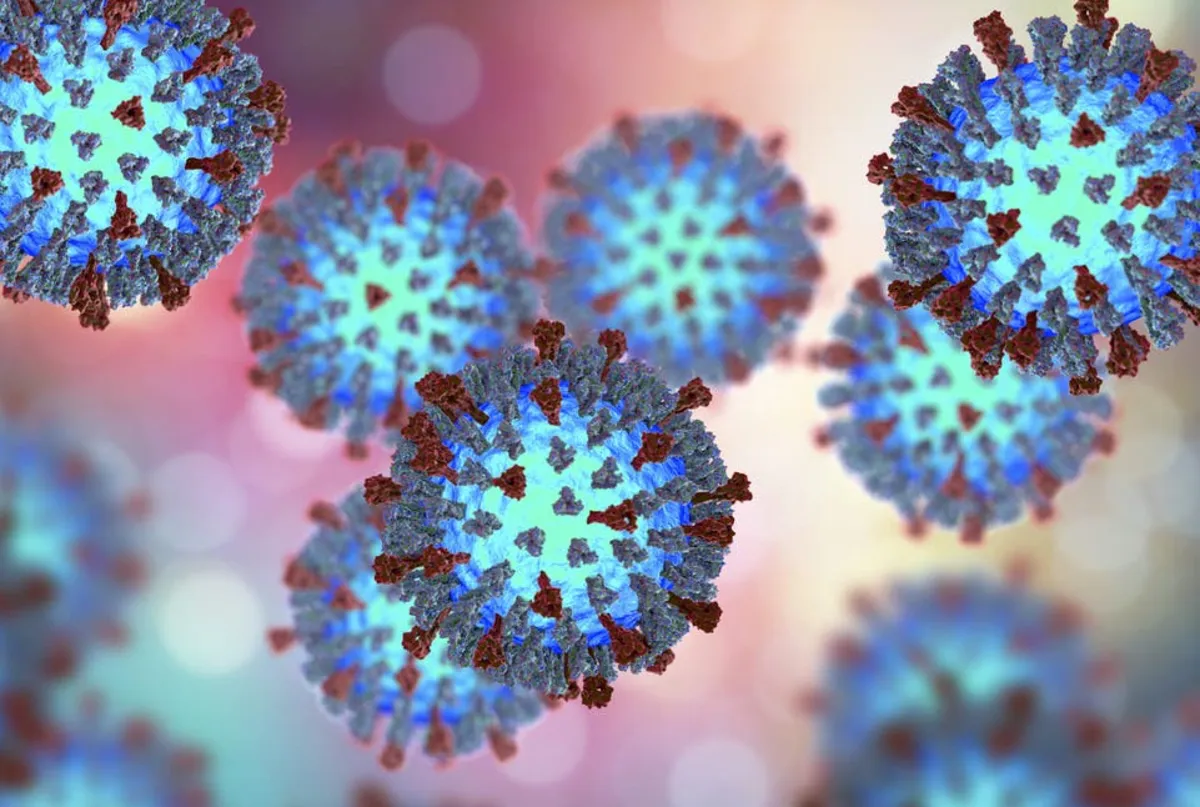
A child diagnosed with measles has visited several hospitals and restaurants across New Jersey this month, prompting state health officials to issue a warning for residents to be vigilant for symptoms. This confirmed case, originating from Hudson County, has raised concerns due to the highly contagious nature of the virus, which can lead to serious health complications.
According to New Jersey health officials, the child visited multiple locations in Bergen, Essex, and Hudson counties since July 4. These locations include a mall and two restaurants, where individuals may have been exposed to the virus. The state is urging anyone who was at these sites during the specified dates to monitor themselves for any signs of illness.
Earlier this year, a measles outbreak in Texas resulted in the tragic deaths of two children and an adult, highlighting the potential severity of this virus. Measles had been largely eradicated in North and South America by 2016, thanks to widespread vaccination efforts. However, gaps in vaccination coverage in other countries have led to a resurgence of outbreaks.
While most children in the United States receive their vaccinations at a young age, the vaccination rate in New Jersey has recently dropped to 92%. Health experts recommend that at least 95% of a local population be vaccinated to effectively prevent the spread of measles. The ongoing health alert serves as a reminder of the importance of staying up to date on vaccinations, particularly the measles, mumps, and rubella (MMR) vaccine.
The New Jersey Department of Health reported that the child visited two emergency rooms on July 4 and 5 before spending time at the Newport Centre Mall and nearby restaurants. Symptoms of measles typically include:
High feverCoughRunny noseWatery red eyesA rash that usually appears between three and five days after symptoms beginThe rash generally starts as flat red spots at the hairline and spreads downward across the body. Measles can lead to severe complications, including pneumonia, encephalitis, and complications during pregnancy.
Anyone who visited the following locations during the specified dates may have been exposed to the measles virus:
University Hospital, Emergency Department, 150 Bergen St, Newark, NJ 07103
Date and Time: July 4, 5:30-10:15 p.m.
Hackensack University Medical Center, Pediatric Emergency Department, 30 Prospect Ave., Hackensack
Date and Time: July 4, 11:15 p.m. through July 5, 2:30 a.m. and also on July 8, between 12:45 a.m. and 7:15 a.m.
Joseph M. Sanzari Children's Hospital
Date and Time: July 8, 5:15 a.m. through July 9, 4:30 p.m.
Roast’d Coffee, 10 River Dr S, Jersey City, NJ 07310
Date and Time: July 6, 4-7 p.m.
Newport Centre Mall, 30 Mall Dr W, Jersey City, NJ 07310
Date and Time: July 6, 6-9 p.m.
Al-Basha restaurant, 1076 Main St, Paterson, NJ 07503
Date and Time: July 6, 8-11 p.m.
Elite Pediatrics, 1 Broadway, Suite 303, Elmwood Park
Date and Time: July 7, 10 a.m. to 1:45 p.m.
CVS, 220 Schuyler Ave, Kearny
Date and Time: July 7, 12:30 p.m. to 3 p.m.
The New Jersey Department of Health is actively working with local health officials to conduct contact tracing and to notify individuals who may have been exposed to the virus. Residents who suspect they may have been exposed or are experiencing symptoms are advised to contact their local health department or healthcare provider before visiting any medical facility. This precaution helps ensure the safety of other patients and medical staff.
As of July 15, no additional measles cases linked to this incident have been reported in New Jersey. However, it’s worth noting that measles cases have surged nationally to the highest levels since 1992, underlining the importance of vaccination and public awareness. The virus spreads easily, remaining airborne for up to two hours after an infected person has left the area, making vigilance critical.
Health officials remind residents to stay informed and ensure their vaccinations are up to date, especially for the MMR vaccine, which protects against measles, mumps, and rubella, as well as potential complications associated with these diseases.